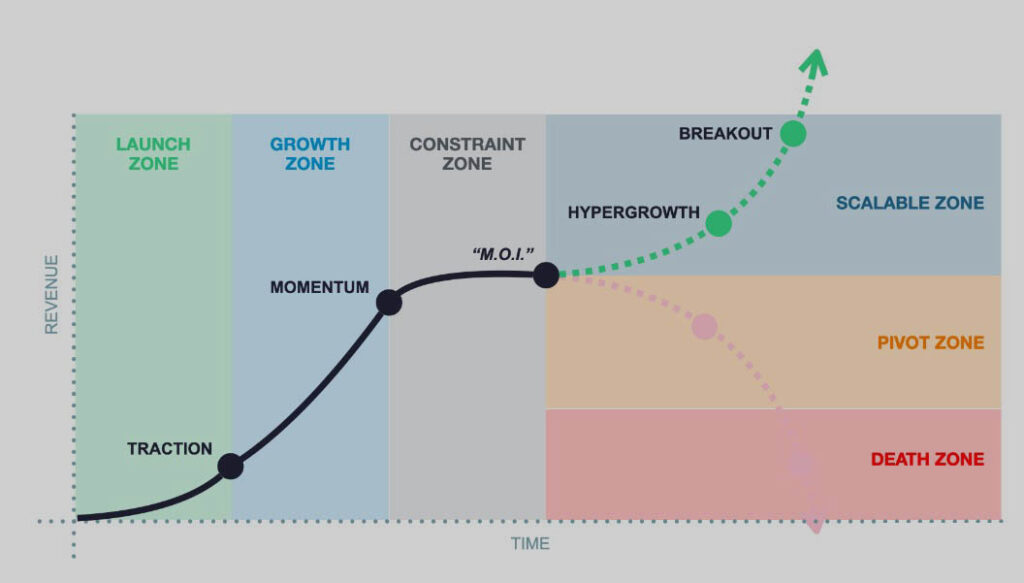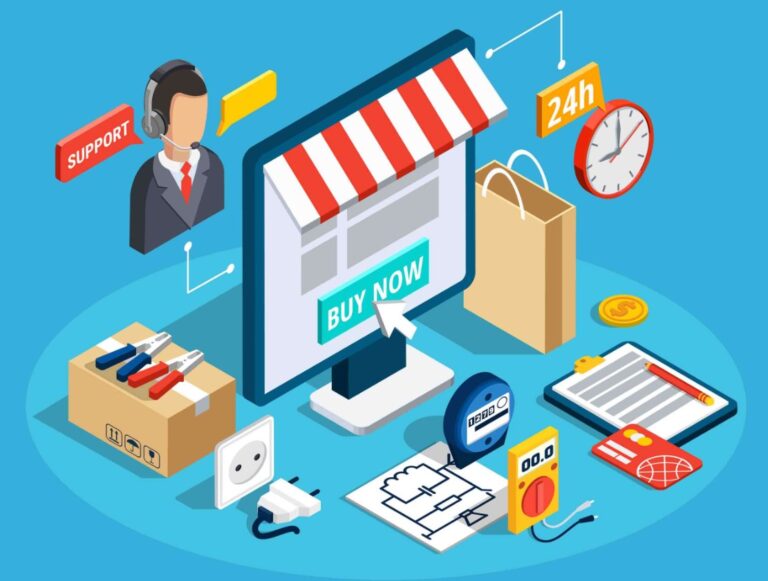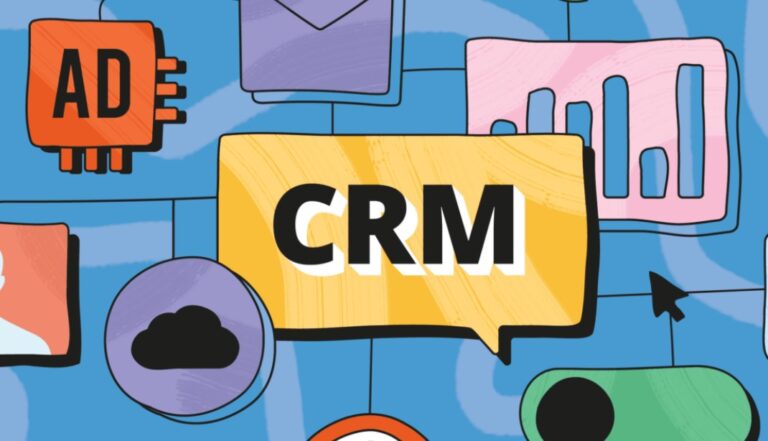How to Create a Scalable Business Model for Long-term Success
Building a scalable business model is crucial for long-term success. As your business grows, it should be able to handle more customers, larger transactions, and higher demand without compromising efficiency. In this article, we’ll explore how you can create a business model that scales efficiently, the benefits of using the right tools, and provide real-world examples of products that can help your business thrive. Let’s dive in!
Understanding a Scalable Business Model

A scalable business model is one that allows your business to grow and increase revenue without being constrained by proportional increases in costs. In other words, as you acquire more customers, expand operations, or launch new products, your expenses don’t rise at the same pace as your income. This creates a more efficient and profitable system that is capable of handling increased demand without overburdening resources.
Key Components of a Scalable Business Model:
- Automation of Processes
One of the most essential aspects of scalability is automation. Businesses that rely on manual operations often face bottlenecks when trying to grow. By automating repetitive tasks like customer service, billing, marketing, and inventory management, you reduce the need for additional labor as your business scales. This not only lowers operational costs but also enhances consistency and reliability.For example, automating email marketing campaigns using a tool like HubSpot or customer inquiries through AI-powered chatbots can handle increasing workloads without adding extra team members. - Technology Infrastructure
To build a scalable business, leveraging technology is critical. Modern businesses that successfully scale do so by incorporating tools that help manage complex operations efficiently. Cloud-based platforms, software-as-a-service (SaaS) products, and customer relationship management (CRM) tools are just a few examples of how technology can make scaling seamless.For instance, e-commerce businesses using platforms like Shopify can handle everything from product listings to shipping logistics in an automated manner, which simplifies scaling operations globally. - Standardized Processes
Standardization is about creating consistent processes that are easy to replicate. When you standardize how tasks are performed, it becomes easier to manage quality and output as the business grows. For example, a franchising model where every store follows the same set of guidelines is a good illustration of standardization in a scalable business.Whether it’s customer onboarding, sales workflows, or product development cycles, having set procedures ensures that new team members or branches can quickly adapt without reinventing the wheel. - Flexible Business Operations
Scalability also involves being able to adapt to changing conditions. A scalable business model should be flexible enough to evolve with market trends, consumer behavior, or advancements in technology. Companies that are rigid in their operations may struggle to grow or adjust to new opportunities.For instance, a business that adopts cloud technology can easily expand operations to new locations or shift to remote work without requiring substantial new infrastructure.
Why Scalability Matters for Long-term Success:
- Sustainability Over Time: A scalable business ensures that as your company grows, it remains sustainable in the long term. Rather than increasing operational complexity, you streamline operations and become more efficient, allowing you to focus on innovation and market expansion.
- Reduced Operational Risks: With scalability comes greater flexibility in managing risks. Businesses that can grow without needing proportionate increases in costs or labor are less likely to face resource strain. This makes it easier to navigate challenges such as market volatility or economic downturns.
- Higher Profit Margins: Because your costs do not grow in line with revenue, scalable business models allow for larger profit margins. You can reinvest these profits into other areas like research, development, or marketing, further fueling growth.
In summary, scalability is not just about growing larger; it’s about growing smarter. Businesses that adopt a scalable model ensure they can manage growth effectively while maintaining efficiency and profitability. Whether through automation, standardized processes, or flexible operations, creating a scalable business model is the foundation for long-term success.
Benefits of Creating a Scalable Business Model

Developing a scalable business model offers numerous advantages that not only streamline your operations but also position your business for sustained long-term growth. By focusing on scalability, you ensure that your business can handle growth effectively while maintaining profitability and operational efficiency. Below is a more detailed explanation of the key benefits of building a scalable business model:
1. Increased Profit Margins
A scalable business model allows your revenue to grow without a corresponding increase in costs. As your business expands and gains more customers, your operational processes, supported by automation and streamlined workflows, handle the increased workload without requiring significant additional expenses.
- Example: If you’re running an e-commerce store on a platform like Shopify, your store can manage thousands of transactions seamlessly, even if your customer base grows tenfold. You won’t need to hire extra staff or invest heavily in infrastructure because the platform scales with your needs, resulting in higher profit margins.
- Why it matters: Higher profit margins allow you to reinvest in your business, whether through marketing, product development, or expanding your team, driving further growth and success.
2. Operational Efficiency
A scalable business model improves the efficiency of your operations. By automating routine tasks and using technology to streamline processes, your team can focus on higher-value activities like innovation, strategy, and customer experience, rather than getting bogged down by manual work.
- Example: Using a project management tool like Asana helps keep track of tasks and deadlines across growing teams. As your company grows, instead of hiring more managers to keep track of progress, Asana can scale your project management needs, ensuring that projects are completed on time and within budget.
- Why it matters: Greater efficiency reduces the amount of time, energy, and resources required to achieve the same (or better) outcomes, allowing your business to grow without expanding overhead costs.
3. Flexibility to Respond to Market Changes
Scalability equips your business to adapt quickly to market changes, consumer preferences, or industry trends without having to overhaul your entire operational structure. A scalable model gives you the flexibility to pivot, adjust, or expand your offerings based on real-time needs.
- Example: A cloud-based tool like HubSpot enables your marketing, sales, and customer support teams to work from anywhere, scaling their operations without the need for physical infrastructure. If market demand shifts toward digital services, your business can easily pivot by adjusting marketing strategies or launching new products without changing your core operations.
- Why it matters: Being able to respond quickly to external changes is crucial in today’s fast-paced business environment. A scalable model allows you to make adjustments without disruptions, giving you a competitive edge.
4. Enhanced Customer Experience
A scalable business model ensures that as your business grows, the customer experience remains consistent or improves. With automated systems and well-defined processes, you can handle more customers while maintaining high-quality service.
- Example: A company using a CRM tool like HubSpot can manage thousands of customer interactions seamlessly. Whether you have 100 or 10,000 customers, the system can handle inquiries, follow-ups, and sales processes without affecting the quality of service provided to each customer.
- Why it matters: Satisfied customers are more likely to return, refer others, and become brand advocates. A scalable model allows you to maintain excellent customer service even as demand increases, helping you build long-term relationships and customer loyalty.
5. Long-term Sustainability and Growth
One of the most significant advantages of a scalable business model is its ability to support sustainable growth over the long term. Rather than experiencing growing pains or operational bottlenecks, a scalable model ensures that your business can continue to grow without compromising its core functions or values.
- Example: If you run a consulting business and start offering online courses, a platform like Teachable can help you scale. You can serve thousands of students with minimal additional investment, allowing your business to grow without needing more instructors or physical classrooms.
- Why it matters: Long-term sustainability is crucial for any business that wants to survive and thrive in the competitive market. A scalable model prevents your business from hitting growth plateaus, ensuring that you have the capacity to scale smoothly over time.
Tools for Building a Scalable Business

Below are some essential products that can help you build a scalable business model. Each tool comes with a detailed overview, comparison, and how it can solve specific business problems. Let’s break them down:
a. Shopify
Overview: Shopify is an e-commerce platform that allows businesses to set up an online store quickly and scale their operations without the need for heavy technical involvement. It’s perfect for businesses of all sizes.
- Pros: Easy to use, extensive app marketplace, strong support
- Cons: Limited customization on lower plans
- Price: Starts at $29/month
- Features: Inventory management, payment gateways, marketing tools
Use Case: Shopify helps e-commerce businesses scale by automating sales processes, managing inventories, and providing a seamless customer experience. Businesses can expand their operations to global markets with ease.
b. Slack
Overview: Slack is a communication tool that allows teams to collaborate efficiently. Its integration with hundreds of apps makes it a powerful tool for scaling communication.
- Pros: App integrations, intuitive interface, mobile-friendly
- Cons: Can get overwhelming with too many channels
- Price: Free tier available; paid plans start at $6.67/month
- Features: File sharing, real-time chat, app integrations
Use Case: Slack helps businesses streamline communication, keeping teams connected and on the same page, which is essential as teams grow in size.
c. Asana
Overview: Asana is a project management tool that helps teams track their work and manage projects from start to finish.
- Pros: Easy project tracking, task assignments, time management
- Cons: May be complex for smaller teams
- Price: Free tier available; paid plans start at $10.99/month
- Features: Task lists, Gantt charts, workflow automation
Use Case: Asana helps businesses scale their project management by ensuring that tasks are completed on time and projects run smoothly. It’s crucial for maintaining efficiency as your team grows.
d. Zoom
Overview: Zoom is a video conferencing tool that has become essential for remote and hybrid teams, allowing businesses to connect with clients and teams globally.
- Pros: Reliable, HD video, easy to use
- Cons: Limited features on free plan
- Price: Free plan available; paid plans start at $14.99/month
- Features: HD video conferencing, webinars, meeting recording
Use Case: Zoom allows businesses to scale their communication globally, enabling seamless video meetings with clients and remote teams.
e. HubSpot
Overview: HubSpot is a comprehensive CRM and marketing automation platform that helps businesses scale their marketing efforts.
- Pros: All-in-one CRM, marketing automation, sales tools
- Cons: Expensive for small businesses
- Price: Free tier available; paid plans start at $50/month
- Features: CRM, email marketing, lead tracking
Use Case: HubSpot helps businesses grow by automating customer relationship management and marketing, ensuring that marketing efforts are scaled efficiently.
Comparison Table of Tools
| Product | Use Case | Pros | Cons | Price | Features |
|---|---|---|---|---|---|
| Shopify | E-commerce management | Easy setup, scalable | Limited customization | $29/month | Inventory management, marketing tools |
| Slack | Team communication | Integrations, intuitive UI | Overwhelming with many channels | Free, $6.67/month | File sharing, app integrations |
| Asana | Project management | Task tracking, automation | Complex for small teams | Free, $10.99/month | Gantt charts, task lists |
| Zoom | Video conferencing | Reliable, easy-to-use | Limited free features | Free, $14.99/month | HD video, meeting recording |
| HubSpot | CRM and marketing automation | All-in-one platform | Expensive for small businesses | Free, $50/month | CRM, email marketing, lead tracking |
Where to Buy and How to Buy These Products
All the tools mentioned above are available online, with the option to start with free plans or purchase directly from their respective websites. Here’s where you can buy them:
- Shopify – Start with a 14-day free trial and choose from different pricing plans.
- Slack – Free tier available, with options for paid upgrades.
- Asana – Free plan available; paid versions offer more features.
- Zoom – Try the free version or explore paid plans for advanced features.
- HubSpot – Start with free tools or explore premium versions for advanced marketing automation.
Use Cases: Solving Business Problems with Scalable Tools

These products can solve common challenges faced by growing businesses:
- Shopify: Handles increasing demand in online sales without requiring significant changes to your existing infrastructure.
- Slack: Scales team communication as you add more employees and departments.
- Asana: Helps manage complex projects as your business grows, ensuring all tasks are completed on time.
- Zoom: Facilitates remote team collaboration and client meetings, no matter how large your business becomes.
- HubSpot: Automates marketing and sales processes, making it easier to manage customer relationships as your business expands.
FAQs
- What is a scalable business model?
- A scalable business model is one that can grow without needing additional resources at the same rate as revenue growth.
- Why is scalability important for business success?
- Scalability ensures that as your business grows, you can manage larger operations without exponentially increasing costs.
- Which tools are best for business scalability?
- Tools like Shopify, Slack, Asana, Zoom, and HubSpot are ideal for scaling different aspects of your business.
- How can technology help in creating a scalable business?
- Technology automates repetitive tasks, standardizes processes, and improves efficiency, allowing your business to handle growth effectively.
- Where can I purchase these products?
- You can buy these products online from their official websites. Most offer free trials or plans to start with.
By leveraging these tools, you can create a scalable business model that ensures long-term success. Each product helps address specific challenges faced by growing businesses, making it easier for you to manage operations, communicate effectively, and scale your revenue. Start scaling your business today with the right tools in place!






